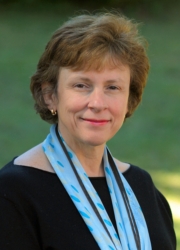Office of Pastoral Support and Outreach, crucial to charter implementation
It’s the rare job description that includes the word “compassionate,” yet a crucial part of a victim assistance coordinator’s job is to respond compassionately to the victims of abuse whom they assist. Since 2002, in compliance with the bishops’ Charter for the Protection of Children and Young People, a victim assistance coordinator has been on staff in virtually every diocese across the country.
The formal description of their duties is threefold -- to assist abuse victims in making a formal complaint of abuse to the diocese, to help arrange a personal meeting with the bishop or his representative, and to obtain support for the victim’s specific needs.
Working closely with those who have suffered abuse, victim assistance coordinators are profoundly aware of the trauma the victims and their families have endured.
The root of the word “compassion” means “to suffer with,” and the word has been expressed at its deepest level in the Archdiocese of Boston, where the child abuse scandal has left deep wounds. In her role as director of the Office of Pastoral Support and Outreach, Barbara Thorp -- hired in her position shortly after the child abuse scandal became public in early 2002, speaks of the “myriad ways” the clergy sexual abuse has traumatized the survivors of abuse, their families, the Church and the community as a whole, even non-Catholics.
She describes herself as “privileged” to work with survivors and expresses her deep respect for them (she prefers the word “survivors” to “victims”) and their families. “It takes an extraordinary amount of trust,” she says, “for survivors of clergy abuse to call upon our office for help. We’re honored to be able to do what we can to help those who’ve been so hurt.”
Those who contact the office are often referred by their attorneys, but some become aware of the assistance through the archdiocesan Web site or from therapists or social workers. Every claim of sexual abuse is taken seriously and treated with the utmost respect. The victim assistance coordinator does not investigate a case. Every complaint reported to the office is referred to the state attorney general. Most victims want their name included in the report, but they may file anonymously if they prefer.
Thorp is available to those impacted by the abuse to help them find therapy and set up a meeting with Cardinal Seán O’Malley. A staff person from the office accompanies the survivors and their families when they meet with the cardinal. According to Thorp, most survivors and their families welcome the opportunity to speak with the cardinal and tell him what happened and to articulate the impact the abuse has had on their lives. They find it particularly important to express the spiritual suffering and alienation they’ve experienced from this betrayal by clergy entrusted to nourish faith.
Not only does the victim assistance coordinator’s office help find therapists for survivors, the archdiocese pays for survivors’ therapy. In 2006, the Boston office supported 285 survivors in therapy, spending over $1.1 million. Since the office opened it has served over 700 people.



















